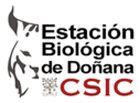Research interests
I am interested in understanding how current global changes are affecting biodiversity
conservation. By using genetic tools, I would like to learn how to monitor different
communities and implement the knowledge derived from these data into conservation
strategies. Additionally, I would like to raise awareness on the current biodiversity
crisis and reach out to the general audience as another tool to help species
conservation.
Current work
I have recently incorporated in the CONSEVOL (Conservation and Evolutionary Biology)
group with a research fellowship from the Spanish Government. This fellowship will
allow me to complete my PhD studies under the supervision of Dr. Jennifer Ann Leonard.
Within the Tropics we can find many diversity hotspots. However, many of
these areas are being highly modified, threatening the biodiversity. Thus,
understanding how current changes (climate change, habitat transformation,
socioeconomic activities) are affecting these zones is important in order to protect the
species richness that they host.
Another important factor when aiming for species
conservation is to understand their evolution. Knowing their evolutionary history can
help us to understand how they could respond to changing scenarios and design
conservation plans based on that.
The project ‘Selection in an altitudinal gradient in the Tropics’ aims to study
how selection acts upon populations inhabiting different altitudes. Using small non-
volant mammals as our study group and the habitats in Borneo as our study area, we
want to explore the current genetic status of populations to see if they are connected
and how they differ. We will use different molecular tools to reach our goal.
Previous work
I had the opportunity to work in the CONSEVOL group thanks to a research fellowship
(JAE INTRO 2021) at the Doñana Biological Station. During my stay I learnt how to
extract DNA from soft tissues and prepare libraries to send them for sequencing.
Additionally, I participated in the course “Conservation Genetics in the Tropics”. I also
had the chance to obtain my certificate in “Animal Welfare for the use of Wildlife with
research purposes”.
My master's programme was focused on the conservation of biodiversity in the tropical areas. We participated in a one-month field course in the Canary Islands, where we had the chance to carry small projects. There, I had the chance to work with populations of the lizard Gallotia galloti palmae that were close to a banana platantion.
For my master's thesis, I worked under the supervison of Dr. Miguel Matias (MNCN-CSIC), Dr. Pedro Raposeiro (University of Azores) and PhD. Student Cátia Pereira (University of Copenhagen). The main objective of the project was to study how the environmental conditions of the different islands shaped the community structure of different freshwater habitats (streams and lakes). I also had the opportunity to participate in the Iberian Ponds Project, doing sampling campains across the Iberian Peninsula. We collected eDNA sampling from articifial ponds as well as zooplankton and phytoplankton samples.
For my bachelor's final project I had the amazing opportunity to be a part of an European campaing of monitoring hibernating bat populations as a part of my ERAMUS programme. I did my final project under the supervision of Dr. Tomasz Kokurewicz.
Publications
Peer-reviewed Articles
|
From University to High-school: looking for a solution to antimicrobial resistance on the floor
Pedrero Tomé R & Veliz Isidro IM (2018)
Psychologia Latina Vol. Especial, 366-369
| |

|
|


